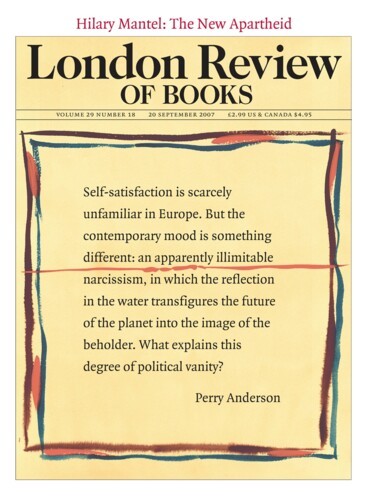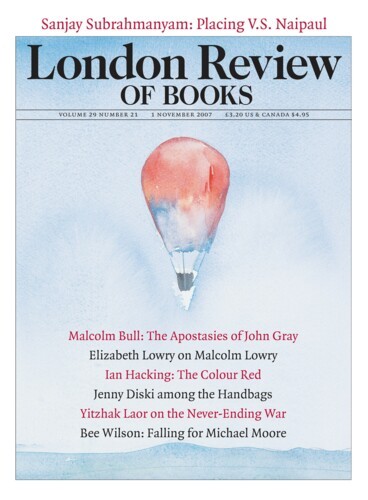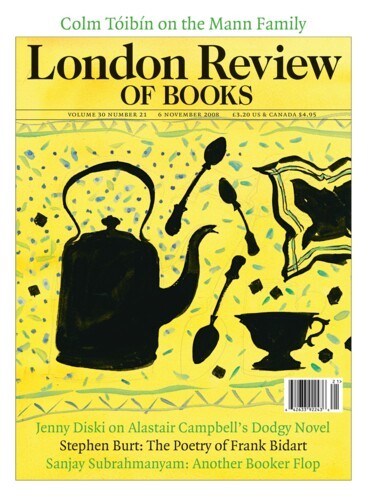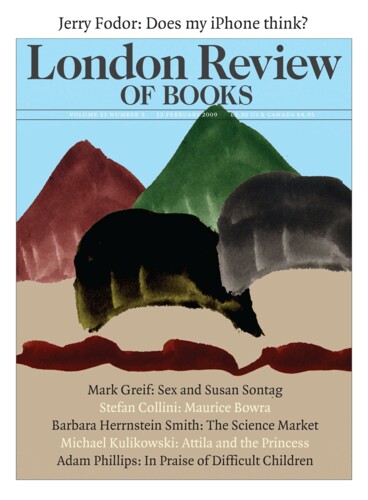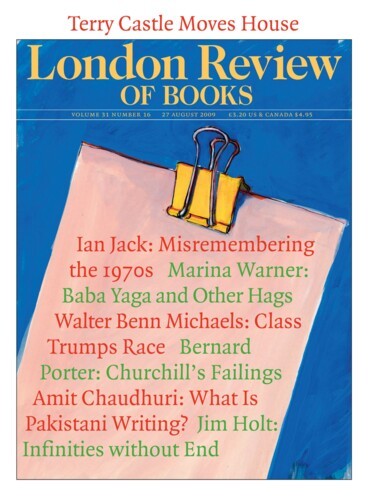How to Write It: India after Independence
Sanjay Subrahmanyam, 20 September 2007
It may seem perverse to begin an essay on India by invoking a historian of France: Eugen Weber, who died this year, a colleague of mine and a formidable presence at UCLA. He wrote a book in 1976 on how France became a proper nation by transforming ‘peasants into Frenchmen’. But the Weber I knew, and bantered with during the last years of his life, also had an Indian past of which...
